Resources
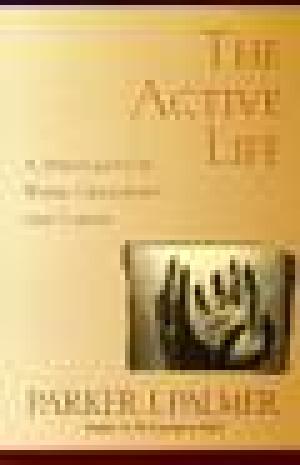
The Active Life is Parker J. Palmer's deep and graceful exploration of a spirituality for the busy, sometimes frenetic lives many of us lead. Telling evocative stories from a variety of religious traditions, including Taoist, Jewish, and Christian, Palmer shows that the spiritual life does not mean abandoning the world but engaging it more deeply through life-giving action. He celebrates both the problems and potentials of the active life, revealing how much they have to teach us about ourselves, the world, and God. (From the Publisher)
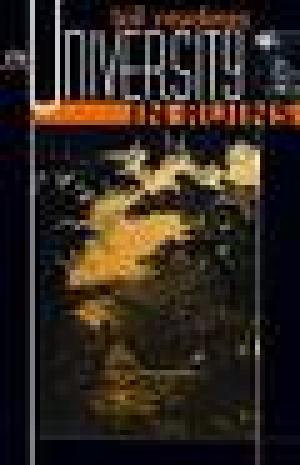
It is no longer clear what role the University plays in society. The structure of the contemporary University is changing rapidly, and we have yet to understand what precisely these changes will mean. Is a new age dawning for the University, the renaissance of higher education under way? Or is the University in the twilight of its social function, the demise of higher education fast approaching? We can answer such questions only if we look carefully at the different roles the University has played historically and then imagine how it might be possible to live, and to think, amid the ruins of the University. Tracing the roots of the modern American University in German philosophy and in the work of British thinkers such as Newman and Arnold, Bill Readings argues that the integrity of the modern University has been linked to the nation-state, which it has served by promoting and protecting the idea of a national culture. But now the nation-state is in decline, and national culture no longer needs to be either promoted or protected. Increasingly, universities are turning into transnational corporations, and the idea of culture is being replaced by the discourse of "excellence." On the surface, this does not seem particularly pernicious. The author cautions, however, that we should not embrace this techno-bureaucratic approach too quickly. The new University of Excellence is a corporation driven by market forces, and, as such, is more interested in profit margins than in thought. Readings urges us to imagine how to think, without concession to corporate excellence or recourse to romantic nostalgia within an institution in ruins. The result is a passionate appeal for a new community of thinkers. (From the Publisher)
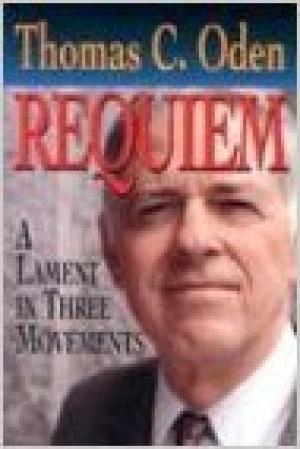
In a post-liberal critique of the mainline establishment, Oden identifies the failures of contemporary theological education and its accompanying ideology, maps out the ultra-liberalization of church bureaucracies and special interest politics, and calls for a return to classical Christian theological roots and categories.
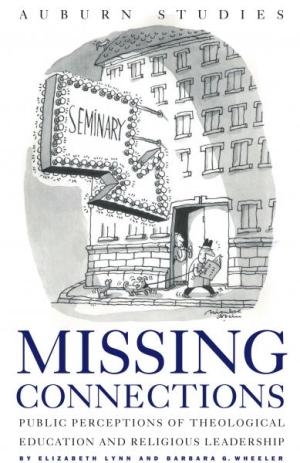
Three themes guide Auburn Center studies of theological education: practices in teaching and learning, the management of institutional resources, and the role of theological education in religious and public life. With this issue of Auburn Studies, we present our first report related to the critical, but complex, reality labeled by our third guiding theme. In the spring of 1998, a research team visited four cities to interview leaders in all sectors of society--business, politics, education, religion, community service, philanthropy, and others--about perceptions of religious leaders and their training. What does the public think about theological education and the religious leaders that seminaries train? People interviewed for this study consider seminaries invisible institutions that produce leaders who offer little civic or public leadership. Most thought this lack of public involvement a missed opportunity, but we heard no consensus about what an increased religious presence in public life would mean. (From the Publisher)
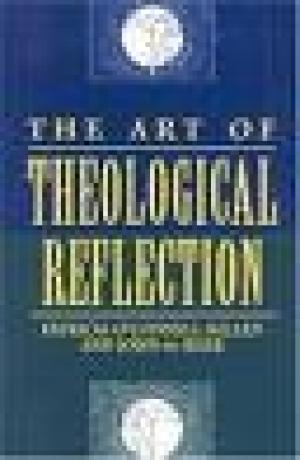
Here is a book for the millions of Christians who want to make a vital connection between their faith and their lives. This practical book provides a way for all of us to experience greater meaning in life and a more tangible sense of God's creative presence. (From the Publisher)
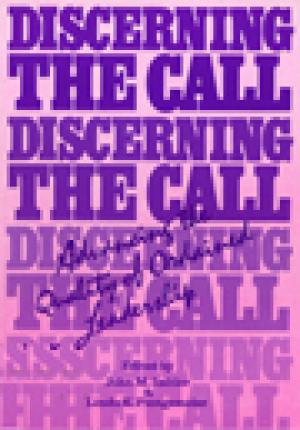
In 1986, 43 percent of Disciples clergy were between fifty and sixty. Where will their replacements come from, and how can we help them recognize and respond to their call? (From the Publisher)
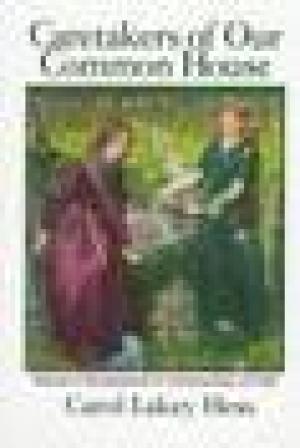
The author provides a provocative description of ways society's institutions have colluded to undermine the full development of women and girls. Relies on Gilligan and Kegan's theories of development; critiques Neibuhr's theology of sacrifice. Weaves biblical stories of women and personal stories into the data and suggests ways that parents, families -- and communities of faith can create environments in which girls and women may find their own voices as expressions of authentic selves. This book is being used by a women's discussion group in an Episcopal parish. Participants find it very provocative and insightful. (From the Publisher)

Where adolescents and young adults are looking for a solid, wide-ranging introduction to gender issues, Gmelch's survey may be a useful acquisition. Although its focus is the college campus, cultural anthropologist Gmelch, head of the women's studies program at Union College, takes a straightforward, practical approach that may be helpful in other contexts as well. Gmelch incorporates discussions of race, class, disability, sexual identity, body image, violence, and substance abuse in brief but focused chapters on gender issues; and she includes material on language and gender, opportunities for women in sports, and treatment of women in the media, the workplace in general, and politics. Each chapter closes with bullet-pointed "Did You Know?" and "What You Can Do" lists and annotated comments on videos and organizations; most include one or two apropos cartoons (sources include Nicole Hollander, Garry Trudeau, and the New Yorker). Mary Carroll (From the Publisher)

At a time of widespread perplexity about the social role of humanistic scholarship, few disciplines are as anxious about their nature and purposes as academic theology. In this important work, W. Clark Gilpin, dean of the University of Chicago Divinity School, proposes that American theological scholarship become responsible to a threefold public: the churches, the academic community, and civil society. Gilpin approaches this goal indirectly, by investigating the historic social roles of Protestant theologians and the educational institutions in which they have pursued their scholarship and teaching. Ranging from analyses of the New England Puritan Cotton Mather to contemporary theologians as "public intellectuals," Gilpin proposes that we find out what theology is by asking what theologians do. By showing how particular cultural problems have always shaped the work of theologians, Gilpin's work profoundly illuminates the foundations of American academic theology, providing insights that will help guide its future. (From the Publisher)

This book is as much, perhaps more, an exhortation to action than a piece of social science research. In an age when the idols of the tribe or the centrality of self are aggrandized, is it possible to restore a sense of human purpose that extends beyond place or person? To answer this question a core of 100 people, determined as "capable of sustaining commitment to the common good in the face of global complexity," were interviewed, not so much to "prove hypotheses" but to develop "fertile insights" for further research and action in order to "kindle a common fire and forge a new synthesis of practical wisdom." This requires people who can regard space as hospitable, inhabited by mentors and others capable of demonstrating that one can and ought to make a difference in the world; people who can develop habits of mind to engage others and a symbolic world, including the world of story and faith, capable of sustaining a committed consciousness. Two "interludes" describe those who exhibit that concern for the commons, and an epilogue suggests an individual and collective strategy to nourish the sense of the collective. (From the Publisher)